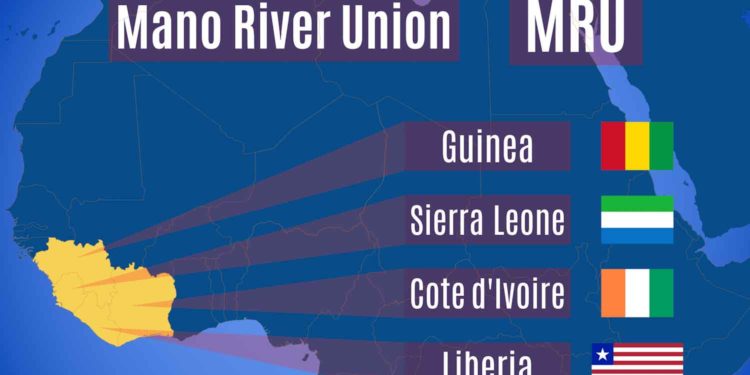Africa’s premier development finance institution – the African Development Bank Group (AfDB) – has committed nearly US$90 for ongoing road construction projects in the Mano River Union (MRU).
The Bank, through its development financing arm – the African Development Fund (ADF), on Wednesday announced the approval by its Board of Directors the sum of $88.2 million in financing for the third phase of its Road Development and Transport Facilitation Programme in the region.
MRU is a subregional organization designed to facilitate regional integration among its member states. Named after the Mano River, which runs from the Guinea highlands and forming a border between Liberia and Sierra Leone, the bloc was first established by the leaders of Sierra Leone and Liberia in 1973. Later Guinea and then Côte d’Ivoire joined in.
The Road Development and Transport Facilitation Programme was initiated in 2015, under a special initiative to boost the post-conflict recovery of the member countries, which had gone through many years of conflicts. Officials say it’s meant to improve road infrastructure thereby promoting intra-community trade.
The project is being financed in phases.
Phase 1, which is near completion, covers Côte d’Ivoire, Liberia, and Guinea.
Phase 2, covering Liberia and Côte d’Ivoire, is ongoing.
The third phase, which covers Sierra Leone and Liberia, entails a grant of $35.1 million for Sierra Leone and another $8.9 million for Liberia. Liberia is also receiving a loan of $31.8 million from the ADF and another $12.4 million loan from the AfDB Group’s Transition Support Facility window.
This phase of the program entails the upgrading to bitumen standard of 50 km of roadway in Liberia and 25 km in Sierra Leone. It will also finance feasibility studies for building 170 kilometers of roads in Sierra Leone and Liberia.
Other components of the project include the construction of a 276-meter bridge over the Makona River between Guinea and Sierra Leone, development of socio-economic infrastructure, and supporting women and youth associations to promote much-needed private enterprise.
The Bank says the program is intended to help improve the standard of the roads linking Kailahun to Koindu, on the border between Sierra Leone and Guinea, and the Putuken-John Davies Town section, which is on the Fish Town-Zwedru axis in Liberia.
“The works will boost the safety and conditions of the Makona River crossing, as well as accessibility and quality of life for local communities,” AfDB says in a statement distributed via the African Press Organization.
Benedict Kanu, AfDB Country Manager for Liberia, underscored the timeliness, relevance and value-added of the program in helping to bolster regional integration and trade in the MRU. His Sierra Leone counterpart, Halima Hashi, indicated that in addition to opening up the region, the third Phase of the project will generate many urgently needed jobs for young men and women during the construction and maintenance phases.
“The project will empower women in the program coverage area through stimulation of agricultural production and marketing, and other income-generating activities and help restore forest ecosystems to mitigate the effects of climatic change and other extreme weather eventsm,” the statement notes.
The AfDB Group comprises three distinct entities: the African Development Bank, the African Development Fund (ADF) and the Nigeria Trust Fund (NTF). With presence in 37 African countries with an external office in Japan, the AfDB contributes to the economic development and the social progress of its 54 regional member states.
As of February 2022, the Group has 16 ongoing operations in Liberia with a total funding commitment of $390 million. The transport sector accounts for the largest share of the portfolio (59%), followed by energy (28%), multi-sector (7%), and agriculture and rural development (6%).
AfDB’s active portfolio in Sierra Leone comprises 14 operations with a total funding commitment of $285 million. Energy accounts for the largest share of the portfolio (36%), followed by water and sanitation (25%), multisector (17%), transport (11%) and agriculture (11%).
This article was slightly edited by ManoReporters






















